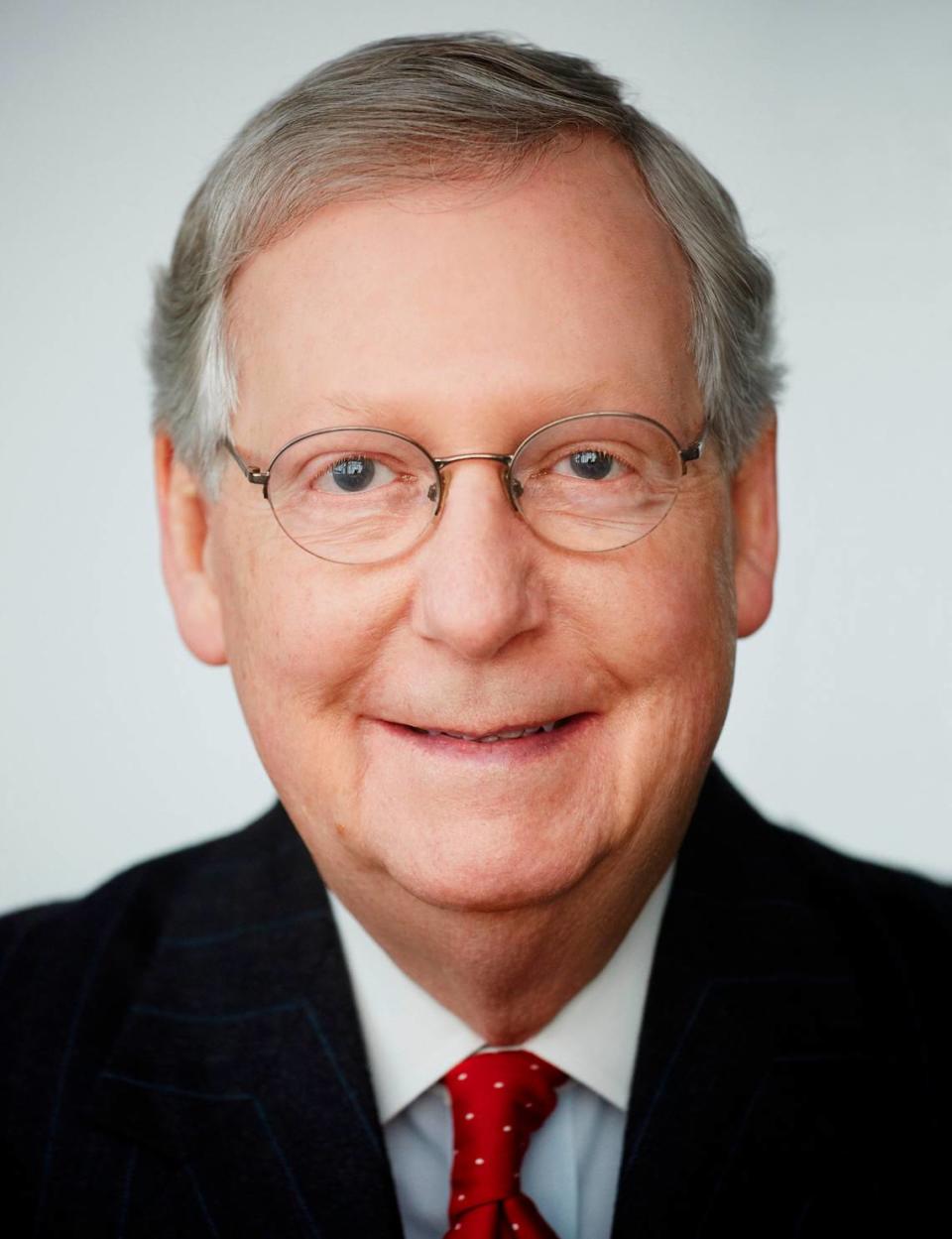McConnell’s opposition to election bill sets a poor example for young Kentuckians
- Oops!Something went wrong.Please try again later.
Nobody likes a hypocrite, Minority Leader McConnell. As young Americans explore politics and develop their opinions, Senator Mitch McConnell is setting a poor example for bipartisanship in his participation of the blockage of the For the People Act of 2021. On June 22, the Kentucky Senator tweeted about the Bill as a “power grab” by the Democrats with “rotten inner workings.” This blame game on behalf of the Commonwealth is not classy, and it is hypocritical because of the power granted to Republicans under current election regulations.
If the Minority Leader wants to talk about “power grabs,” he could find common ground with conservatives and moderate Democrats alike about the removal of the filibuster. Removing limitations instilled by the existing 60-vote requirement could be argued as a “power grab” of the majority party at the time. But even for those who agree about the filibuster, these claims about the For the People Act are a stretch.
The For the People Act includes systemic changes to elections on the federal level, which aim to eliminate the inequities that led to the election conspiracies in the 2020 cycle. This includes the creation of independent redistricting commissions that would redraw Congressional district lines, which are currently drawn by state legislatures. This surely cannot be a Democratic “power grab” if the power is given to an independent commission. Gerrymandering is the practice of a majority party drawing skewed district lines by twisting census data to ensure that their party will win Congressional races. If the Senator admits that gerrymandering fairly reflects the votes of his constituents, then he should have no problem giving the pencil to an independent commission. It is no coincidence that Kentucky falls within the list of the most gerrymandered states. The Minority Leader should not be prioritizing the un-democratic practice of gerrymandering for his party over the voices of his constituents. An effective and fair leader should feel security in their party’s ability to hold office without favors from the state legislature.
Apart from his griping on Twitter, McConnell has also expressed concern over an “assault on the fundamental idea that states, not the federal government, should decide how to run their own elections.” The states still have full autonomy to fundraise, organize, petition, and register voters. The requirement to disclose additional campaign financing and spending, which would be required under S. 1, does not affect the operation of an election cycle. It just requires transparency. This applies to redistricting, same-day registration, and the required disclosure of tax returns under the bill as well. The For the People Act cannot be simplified as a ‘big-government’ take on elections.
The reason for exposing this hypocrisy is not malicious. Admittedly, Minority Leader McConnell has brought positive attention to Kentucky over his 36 years as Kentucky’s Senator. In the recent election cycle, he congratulated President Biden on his victory after the electoral college confirmed his win, despite the efforts to overturn the election by President Trump. He has sustained integrity among the Republican party as a leader. He has also brought the Kentucky into national conversations about financial growth, even as a state with extremely low health care, education, and fiscal stability ratings. However, these victories are continuously minimized by immature rhetoric about election reform.
It is Senator McConnell’s duty to ensure fair elections for his constituents as he looks to passing the torch to young, impressionable Kentuckians. They are watching and ready to continue this work. Kentucky has the potential to grow, but he must leave the Commonwealth with a respectable, tough, and honest reputation among Congress by ensuring equality and respect among all constituents.
Annalese Cahill is a student from Crescent Springs currently living in Washington, DC for a program through the Fund for American Studies.


